
Do you have what you need to make your garden grow?


Garden Center
Store Hours
Mon-Sat:
6:00am - 10:00pm
Sun:
8:00am - 8:00pm
Curbside:
09:00am - 6:00pm
Location
Popular at Your Garden Center
Spring Garden Supplies
Explore Popular Spring Plants
Garden Project Calculators
;Resize=(703,395.44))
Grass Seed Calculator
When you're ready to seed your lawn, our calculator helps you estimate the amount of grass seed you'll need to get the job done.
;Resize=(703,395.44))
Mulch Calculator
Enter your preferred material, the square footage and mulch depth of the coverage space for accurate results.
;Resize=(703,395.44))
Fencing Calculator
We'll calculate the amount of fencing you should purchase based on your property needs.
Shop Outdoor and Garden Brands
Frequently Asked Questions About Gardening
Which planting zone am I in?
Check the USDA growing zone map, as planting zones have changed slightly over the years. Planting zones with higher numbers can plant earlier in the year. Choose plants that are meant for your zone and increase your odds of successful gardening.
When can I plant seeds outside in the spring?
If the soil is warm and pliable, consider planting your fruit, veggie, or flower seeds directly into your garden. This is called the "direct sow" method. Plant after the threat of frost is gone for the season, as seedlings and sprouts can't weather those conditions. You can also start your seeds indoors if you'd like. Consult your seed package for how and when to sow seeds.
How do I plant seeds?
Follow the instructions on your seed packet. It'll tell you when to start them indoors and when to direct sow. Generally, you'll add several seeds per planting hole, then push them down with your finger. Mark where you planted them with a twig, wooden craft stick, or flag so you don't mistake them for weeds later.
Do I have to harden off my seedlings before planting them outside?
Yes, if you raised plants indoors from seeds in your own plant nursery, harden them first before you transplant them. Hardening allows your seedlings to adjust to outdoor life and the fluctuating spring weather, making them more resilient against cold snaps. It slows their growth until they're strong and ready to take off during a spring warm front.
What should I check before planting transplants or seeds outside?
Before you plant, make sure that it's warm enough outside, the soil is healthy, and your plant will have the right amount of sun. Check your seed packet to see if it likes partial sun, full sun, or shade, as well as what time of year it should be planted. Space your plants as described for best results so your plant babies have room to flourish.
Should I use peat moss starters or coir starters?
Seed starters, full of nutrients in pots or pellets, work for new and experienced gardeners alike. You don't have to use these starters if you're planting in soil, but you may want to. Starting seeds in peat pots works best for delicately rooted plants like carrots and beets, as well as flowers that need acidic soil. Some people prefer coir starters instead, as they have a neutral pH. Check what type of soil your plants need to help narrow it down, and chat with a garden center associate if you need more info.
Garden Project Ideas
The Home Depot Garden Center at Jacksonville (Lane Ave)
Celebrate Springtime Gardening
On beautiful spring days, tidy the yard before everything blooms in earnest. Many people feel inspired to refresh their outdoor space for entertaining as well. Don't forget to clean out the shed and sweep the gazebo in preparation for spring, too. No matter which plants you need and what outdoor projects you choose to tackle, search for your local plant nursery and find that The Home Depot Garden Center in Jacksonville (Lane Ave) can help you enjoy your spring activities to the fullest.
Plant Hardiness Zones Explained
The first thing to know when planting spring flowers, veggies, and other seeds is your planting zone. Every location in the U.S. and its territories is sorted by climate. Find your zone on the USDA plant hardiness zone map and learn when to plant seeds.
For example, you could transplant bell peppers outdoors in mid-March in Zone 10, but not until the end of May in Zone 4. The plants that'll thrive in your area are in your zone — plus all the zones numbered less than that. In other words, a Zone 9 garden can support plants listed as Zones 1–9. The timeframe to direct sow outdoors in your garden is often around a month later than the indoor start date. Be sure to read your seed packet for details. If you start plants a little later than recommended, it's not ideal, but it will likely even out as time passes.
Gardening in Your Growing Zone
In the areas of Zones 9 and 10 stretching across the Southeast, you can plant indoors early in the year. Your odds of frost are low in this part of the country, but not zero. Keep an eye out for cold snaps and cover any sprouts or early-riser bulb plants during cold times.
The weather and climate make it easy to get and keep a beautiful garden. A wide variety of plants, veggies, and flowers thrive in Florida and southern Georgia. You can even grow citrus trees for fresh fruit when you plant somewhere with good soil drainage. You'll have excellent results with peppers of all heat levels and colors, including bell peppers, jalapeños, and more. Cucumbers, zucchini, squash, and pumpkins, which are direct sow only, will flourish. Tomato plants will yield thriving leaves and fruit, as they're tropical in origin and are happiest in the heat.
Start Seeds Indoors
Grow your garden from seeds by starting them indoors in your own plant nursery. We've got all the seed starter supplies you'll need. Make sure you have a warm and sunny spot that gets at least 12 hours of light and good soil, a spray bottle of water, and patience. Then you have everything you need to try growing seeds. Early spring light isn't usually strong enough, so we recommend extra lighting to keep those seeds warm enough to germinate.
Measure your finger to use it as a ruler. In general, you'll plant 3–5 seeds, then press them into the soil to the depth you need with your finger. Mark where you planted the seeds with a plant tag or toothpick. That way, you'll know where your seeds should pop up, and you can be sure they're not weeds. Otherwise, it'll be a surprise when the sprouts push out of the soil.
Sprouts
When your seeds have sprouted but aren't ready to go outside yet, you can still prepare them for outdoor life. These inch-tall micro-seedlings are fragile but resilient. Seedlings don't get all this pampering in nature, so they can handle more than you think. However, don't go overboard, as your sprouts are still babies. You can even use an oscillating fan on low to mimic the wind and strengthen their stems.
Harden Your Seedlings
Make sure to harden off your seedlings once they're a few inches tall. This process of gradually introducing them to the outdoors makes them stronger in the long run. Hardening means you're less likely to lose your growing garden during a sudden cold snap.
Transplant Young Plants Into Their New Homes
When your plants have three or four real leaves — different from mini seedling leaves — transplant them. In quality soil, dig a hole that's the same size as the dirt plug where your transplant has been growing. If your ground soil isn't fantastic, dig a slightly bigger hole and fill the extra space with nutrient-rich topsoil. Apply fertilizer as directed. Don't apply more than recommended, as you could burn and kill the plant instead of helping it.
Protect Your Garden With Mulch
Finish it all off with compost and mulch. Compost enriches the soil so your garden can grow even better. It may help foster larger and stronger plants that bear more flowers and fruit. Mulch keeps your soil moist and controls weeds. Mulch and compost can be DIY creations, but you can also purchase them in-store. The next time you're looking for "mulch near me," stop by the Garden Center to get the perfect amount.
Greet the Spring
Don't miss a minute of growing season. Plan your garden and landscaping, prepare to fertilize your lawn, and browse The Home Depot nursery to find inspiration on which spring flowers to plant when the weather warms. For those without lawns, consider adding an outdoor rug, artificial grass, or a pellet grill to your patio or balcony. Shop for the soil, seeds, and fertilizer you need in the aisles of your Jacksonville (Lane Ave) Garden Center, online, or on our mobile app. Let's get growing together.
Nearby Stores
Find Another Store
1919 Wells Rd
Orange Park, FL 32073
8.41 mi
Mon-Sat: 6:00am - 10:00pm
Sun: 8:00am - 8:00pm
9751 Crosshill Blvd
Jacksonville, FL 32222
9.03 mi
Mon-Sat: 6:00am - 10:00pm
Sun: 8:00am - 8:00pm
12111 Lem Turner Rd
Jacksonville, FL 32218
10.11 mi
Mon-Sat: 6:00am - 10:00pm
Sun: 8:00am - 8:00pm
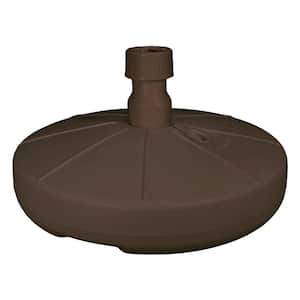

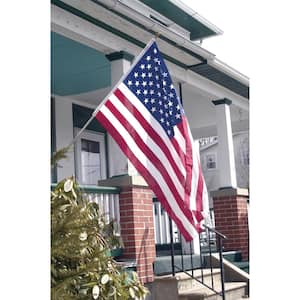
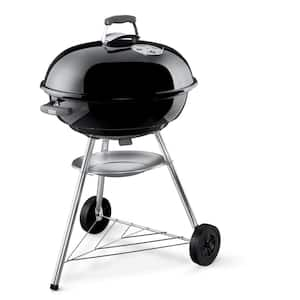
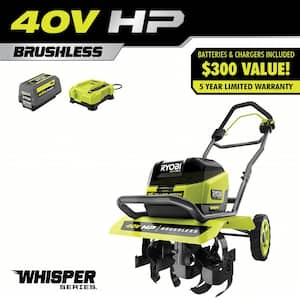
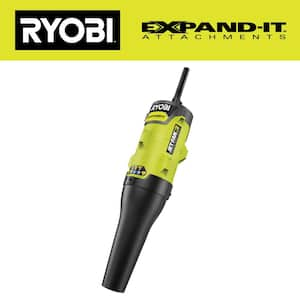
)
)
;Resize=(300,300))
)
)
/2023_P2_Rain_Barrels_Product%20Image%20(square).jpg?im=Resize=(300,300))
)
;Resize=(300,300))
)
;Resize=(300,300))
;Resize=(300,300))
;Resize=(300,300))
)
;Resize=(300,300))
/12_SOIL_B_0420_Social%20media%20(square).jpg?im=Resize=(300,300))
;Resize=(300,300))
;Resize=(300,300))
)
)
)
;Resize=(300,300))
;Resize=(300,300))
;Resize=(300,300))
;Resize=(300,300))
;Resize=(300,300))
)
;Resize=(300,300))
/18Patio_Camden_Seagrass_5pcSeating_Planters_302468736_DTL3_L_Social%20media%20(square).jpg?im=Resize=(300,300))
;Resize=(300,300))
;Resize=(300,300))
;Resize=(300,300))
;Resize=(300,300))
;Resize=(300,300))
)
)
)
.jpeg?im=Crop,rect=(363.69230769230774,1.2307692307692308,958.7692307692308,958.7692307692308);Resize=(300,300))
;Resize=(300,300))
;Resize=(300,300))
;Resize=(300,300))
)
)
;Resize=(300,300))
;Resize=(300,300))
;Resize=(300,300))
)
;Resize=(300,300))
)
)
)
)
;Resize=(300,300))
;Resize=(300,300))
)
;Resize=(300,300))
)
)
/Capello_Spring_Mum_10in_Social%20media%20(square).jpg?im=Resize=(300,300))
;Resize=(300,300))
)
)
;Resize=(300,300))
;Resize=(300,300))
)
)
)
)
)
;Resize=(300,300))
;Resize=(300,300))
;Resize=(300,300))











































